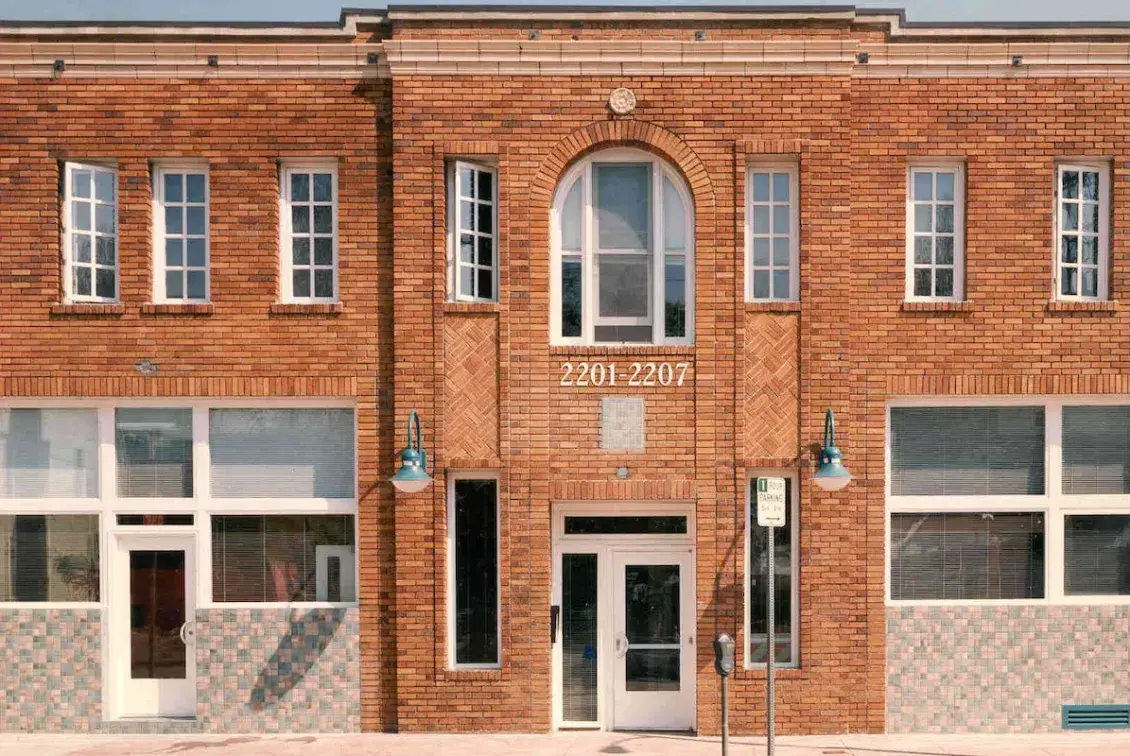LOS ANGELES (July 10, 2025) — A report released by Enterprise Community Partners reveals significant and growing physical repair needs in aging permanent supportive housing (PSH) properties across Los Angeles—posing a threat to long-term housing stability for formerly unhoused residents unless immediate and ongoing investments are made.
Avoiding the Domino Effect: Evaluating the Physical Conditions of Aging Permanent Supportive Housing Sites presents findings from physical needs assessments (PNAs) conducted on 20 nonprofit-owned properties in Los Angeles County.
Many of these properties—some of the region’s earliest examples of permanent supportive housing—are now rapidly aging. On average, the buildings analyzed in this report were constructed nearly 100 years ago and have served as PSH for about 26 years. The assessments uncovered deferred maintenance averaging $15,000 per unit, with urgent upgrades needed for core systems such as roofs, HVAC, and interior finishes.
“These are the very housing communities that provide stability and support to our most vulnerable residents,” said Marc Tousignant, Southern California Director of Supportive Housing for Enterprise Community Partners and co-author of the report. “Without timely investment, these properties face a cascading decline in physical condition that could ultimately jeopardize their viability and displace residents.”
Underscoring a Growing Gap in Maintenance Funding
The study also found that current reserve levels are inadequate to support the long-term upkeep of PSH buildings. The report recommends increasing annual per-unit reserve contributions by at least $500—more than double current norms—to ensure owners can meet repair and maintenance obligations before conditions worsen.
In this report, reserve levels refer specifically to replacement reserves—annual funds set aside to cover long-term capital repairs and to maintain the property’s financial health.
“Much like preventive healthcare, proactively preserving supportive housing can avoid far more costly interventions down the line,” said Jonathan Schreiber, Vice President of Community Engagement at Cedars-Sinai, which funded the study as part of its broader homelessness prevention work. “We have a clear opportunity to help our community by extending the useful life of these homes.”
Key Policy Recommendations
To maintain the viability of aging PSH assets, the report outlines three urgent priorities:
Create dedicated preservation funding: Policymakers should establish targeted capital programs to address immediate repair needs and modernize aging PSH stock.
Reassess underwriting standards: Developers and funders should align reserve requirements with the actual cost of long-term stewardship of PSH, which often exceeds that of traditional affordable housing.
Build asset management capacity: Owners need tools, training, and technical assistance to manage complex building systems and conduct regular capital needs assessments.
Balancing Preservation and Production
While production of new housing remains critical, neglecting the existing properties can lead to avoidable costs, reduced housing quality, and system-wide setbacks.
“Preservation and production must go hand-in-hand for all types of affordable homes,” Enterprise VP and Southern California Market Leader Jimar Wilson said. “Strategic reinvestment in our existing PSH and multifamily housing ensures we protect the progress made in housing all Angelenos—and avoid a downward domino effect of decline and displacement.”
About Enterprise Community Partners
Enterprise is a national nonprofit that exists to make a good home possible for the millions of families without one. We support community development organizations on the ground, aggregate and invest capital for impact, advance housing policy at every level of government, and build and manage communities ourselves. Since 1982, we have invested $80.9 billion and created 1 million homes across all 50 states, the District of Columbia, Puerto Rico and the U.S. Virgin Islands – all to make home and community places of pride, power, and belonging.
